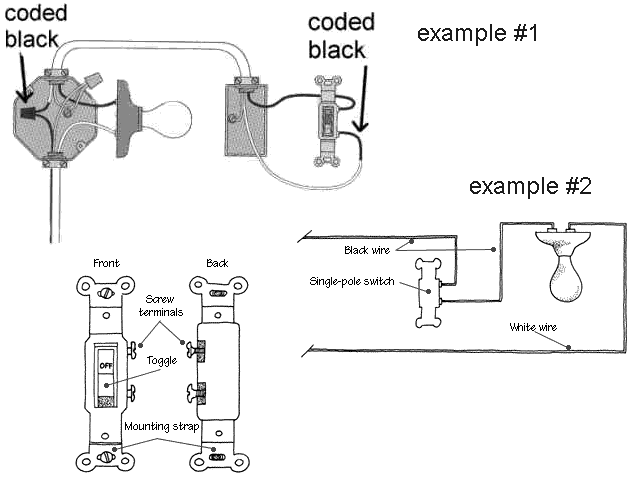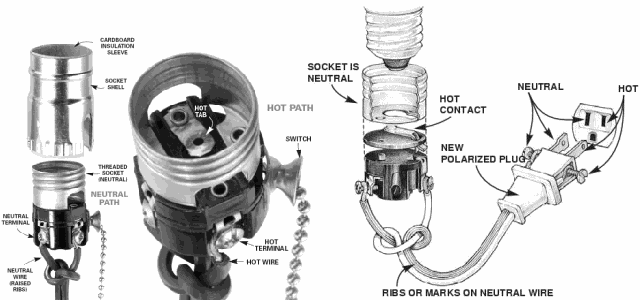Wiring an Electrical Light Switch
Mount a light switch 48 inches from the floor.
Standard 2-Way Switch
The most familiar light switch, the common "light switch" is actually referred to by hardware dealers and electricians as a "single pole switch." A single pole switch has two brass terminal screws on the side.
3-Way Switch
A three way circuit allows a person to control a light from two locations. This means that you have the ability to turn the light on or off from either of switch locations, regardless of the position of the other switch. However, unlike the standard 2-way switch where up is on and down is off, the positions of the switches on a 3-way switch is not always indicative of the of the light being on or off.
Lamp and Light Fixture Sockets
The threaded part of a light socket should NEVER be hot for safety reasons. The tab at the bottom of the socket is where the hot voltage is supplied, which is switched via the pull chain - or if using a switched light, by the switch.
The neutral wire of a lamp cord is typically marked in some way and goes to the wider of the two plugs at the end.
The most basic light fixture has a brass terminal and a silver terminal at the top for connecting to electrical wires. To wire the fixture for safety and to electrical code, the hot wire should be connected to the brass terminal screw, and the neutral wire to the silver terminal screw.
- Brass Screw Terminal - Hot
- Silver Screw Terminal - Neutral


